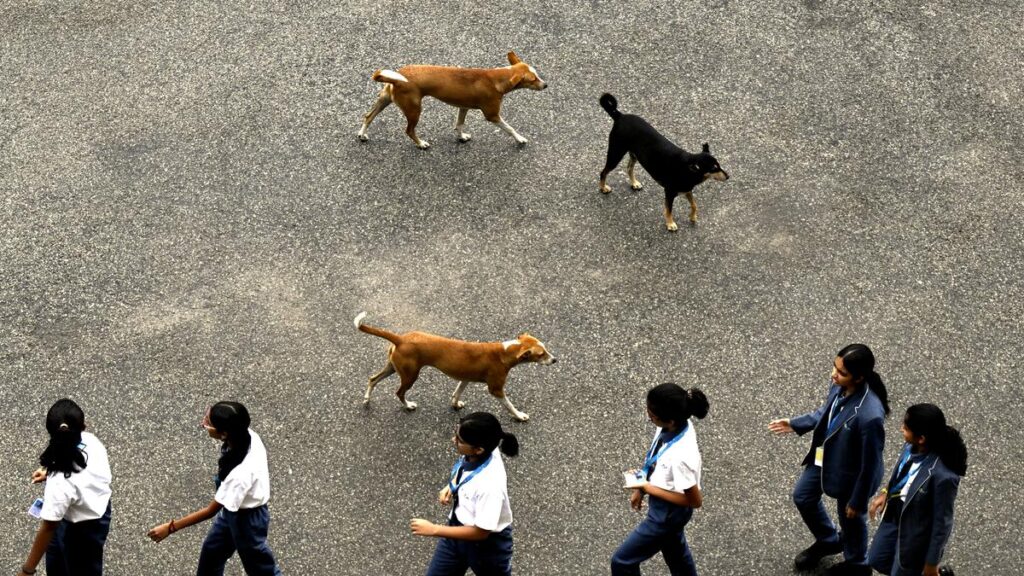970x125
The Supreme Court’s directive (the apex court has reserved the judgment on the interim plea seeking a stay on this directive) asking the Delhi government to remove all stray dogs from the streets and relocate them to shelters within eight weeks has sparked off an intense debate on social media and various platforms, with animal rights activists and citizens, including celebrities, arguing that removing all strays from the streets is not only inhumane and impractical, but also unlikely to solve the rabies problem.
970x125
In Kerala too, where public concern has been mounting over the growing stray dog population and rising rabies deaths, animal rights activists face bitter opposition from families who have lost their children to the disease.
Shilpa of Naranganam, Kozhencherry in Pathanamthitta, breaks down as she recalls losing her 13-year-old daughter, Bhagyalakshmi, to rabies in May this year just because of the ‘carelessness’ of her neighbour in failing to vaccinate their pet dog.
“As a mother who has lost her daughter, I cannot understand why human lives should not be valued more than that of stray dogs. ABC programmes are a waste of money and are not going to prevent stray dog attacks. I think it is a good decision to round up all roaming dogs without owners and free the streets as children become the victims most of the time,” she says.
Rajani of Vadasserikkara in Perinadu panchayat in Pathanamthitta, another mother who lost her 12-year-old girl, Abhirami, to rabies in August 2022, echoes similar sentiments.
“She was an accomplished child and had a promising future. She was our hope and joy. Our family has never been the same after she passed. The strays should be removed from the streets so that our children are safe. If animal rights activists are arguing for protecting strays, they should also take responsibility for sheltering them,” says Rajani.
Latha Indira, an activist of People For Animals (PFA) in Thiruvananthapuram, says: “removing all dogs from streets and keeping them in confinement is not the blanket solution to rabies. Kerala is not an island that once removed, no dogs will repopulate the area. People are just going to use this opportunity to dump the pets they no longer want on the streets.”

Rabies affects the poor disproportionately and most of the deaths have occurred in rural areas among people in the low socioeconomic strata. A chunk of the victims are young children, says S. Harikumar, assistant director (Public Health).
ABC fails to take off
Annual mass vaccination of dogs, an animal birth control (ABC) programme taken up in a de-centralised, steady and sustainable manner, rabies education and intensified human and animal rabies surveillance have to go hand in hand to make a difference in dog population and get a grip on rabies as a public health issue.
ABC efforts are resource- and infrastructure-intensive and these require dedicated human resources too. Unless 70% of the dogs in a locality are sterilised at a time, the dog population will not stabilise.
“ABC projects have failed to take off because of the lack of a long-term plan and due to the hostility of local people, who do not want dog shelters in their locality. Even experienced NGOs which are willing to take up the ABC efforts are turned away by the government,” says Ms. Indira.
Though there are many small and successful ABC initiatives taken up by NGOs and foreigners who are dog lovers, the government does nothing to support these efforts. ABC becomes an imperative for the government only when a human rabies case happens, she says.
“There are no overnight solutions. ABC and mass vaccination are resource-intensive and would have to be taken up without fail for five to seven years before we can make an actual difference,” she adds.
“Responsible pet ownership, timely vaccination of domestic pets, rabies awareness and easy access to post-exposure treatment should happen, necessarily, alongside mass dog vaccination and ABC programme. People are very lax about keeping their pets’ vaccination up-to-date,” Dr. Harikumar points out.
Pothencode Town Residents’ Association, with the help of PFA, has been systematically running a free annual vaccination programme for domestic dogs without fail since the past 23 years. The response in recent years to this initiative has been lukewarm, though.
“People do not realise how valuable a service we are offering or how important it is to vaccinate pets regularly without fail. We get no support or even a word of appreciation,” says Sudhan S. Nair, the secretary of the association
Public health experts point out that it is a balancing act between animal welfare and public safety that the government should be aiming at and not the elimination of dogs.
Published – August 18, 2025 03:14 pm IST
970x125

